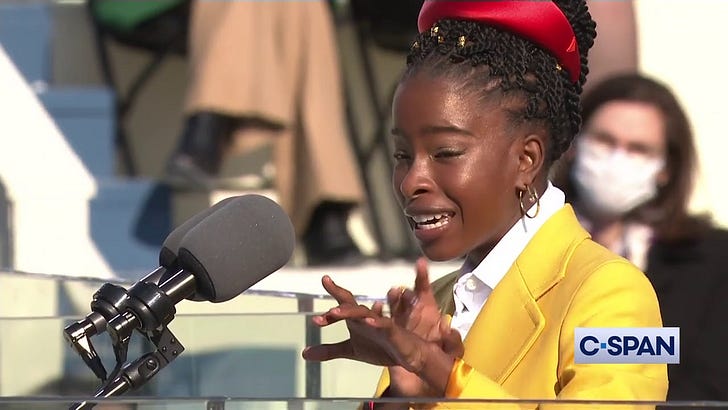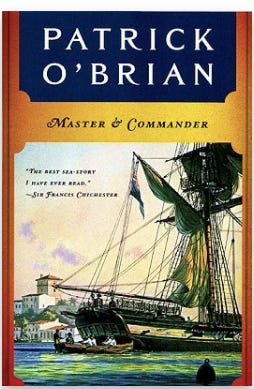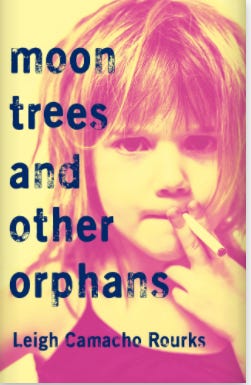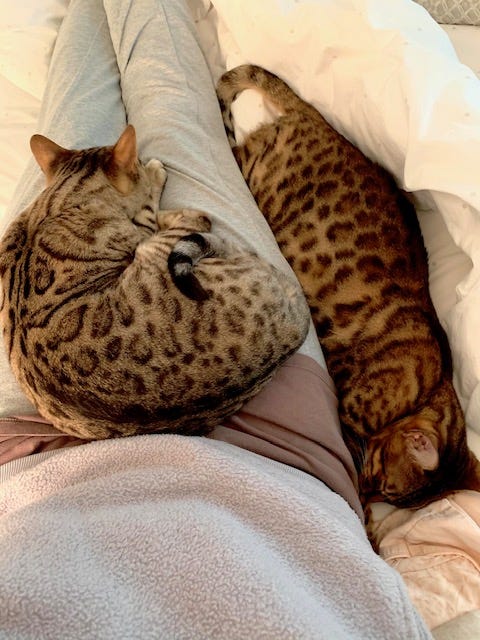“We may feel bitterly how little our poems can do in the face of seemingly out of control technological power and seemingly limitless corporate greed, yet it has always been true that poetry can break isolation, show us to ourselves when we are outlawed or made invisible, remind us of beauty where no beauty seems possible, remind us of kinship where all is represented as separation." (Defy the Space That Separates, The Nation, October 7, 1996)” ― Adrienne Rich
In this issue
Thank you
The power of a words, and one poem in particular
The mysterious appetites of grief
Thank you
Thank you for your kindness and the time you took to offer me comfort in the wake of my father’s death last week. Every kind, understanding word has been a reminder of how connected we humans remain in the matters of life and death, joy and grief, despite how much distance separates us or how deep we are in our quarantined worlds. Words have the power to do so many things and yours have helped and continue to help me through this passage. I am grateful.
The Power of Words and A Poet Who Knows How to Wield Them
As I mentioned last week, I wanted to hit restart on 2021 this week. I made the black-eyes peas so they would be ready on Wednesday, the official restart of 2021. When Wednesday morning came, I turned on the television to watch the inauguration. I cried. I’ve been doing a lot of that lately but these tears were good tears, healthy tears, sometimes even happy ones.
As I watched Wednesday’s ceremonies, I was struck all over again by the power of words. Not once did any of the speakers shy away from the enormous challenges that have followed us into 2021. We were told the pandemic’s worst months may be ahead of us. We were reminded of the deep divisions that exist among us. More than one speaker, including the new president, reminded us of the damage that comes from applying the power of words to destructive ends: persistent lies that throw everyone and everything into doubt, including the ability to trust facts and identify truth.
It's because being American is more than a pride we inherit,
it’s the past we step into
and how we repair it” - Amanda Gorman, The Hill We Climb
We were told that it would take lots of work to struggle forward and try for change but we were also reminded that we have what we need within us. We have to look for it. We have to make choices. And we have to be ready to do repair work which requires us to be honest with ourselves and each other. The call for unity was no “kumbaya” moment as some have attempted to describe it; it was a challenge. No single president can save us just as no single president could destroy us. But we can destroy ourselves and the future for our children if we are not able to find our way towards common ground.
And so we lift our gazes not to what stands between us
but what stands before us
We close the divide because we know, to put our future first,
we must first put our differences aside - Amanda Gorman, The Hill We Climb
The words of Amanda Gorman, the young poet laureate, ring in my ears two days after she spoke them on the inaugural podium.
In the past, I have watched presidential inaugurations with interest, sometimes hope but also distance, perhaps even a bit of skepticism or worse, cynicism. I’m sure as the days ahead unfold, there will be many opportunities to be skeptical or cynical. I hope to resist them. I know it won’t be easy. As I think about how members of my own family has suffered -- with illness, with inadequate health insurance, with the evaporation of businesses that sustained them and their employees, with a virus that has, so far, sickened three of them and killed one -- I get how seductive it is to blame and retreat where everything feels safer or at least familiar.
We've learned that quiet isn't always peace
And the norms and notions
of what just is
Isn’t always just-ice - Amanda Gorman, The Hill We Climb
The last four years, however, have exposed how much of my life I’ve already spent hunkered down in the familiar with assumptions that were not challenged and where it was easy to avoid hard choices and judge others. I am grateful to every writer, every activist, and every friend and neighbor who, over these four years, has educated me, motivated me, and helped pull me forward with their persistence, their fire, their actions, and, always, their words. They showed me that I was part of the problem and needed to decide where I stood. They have reminded me that change is a struggle, a process that only happens if I am willing to take responsibility for my own words, my own actions and be willing to grow no matter how painful it is. Moments like the inauguration are pauses, not endings. They are there to celebrate a little, to reflect on what is possible, and to restore us so that we can keep on going. Although change can only happen through action, if we are lucky, there will be those who can light our way with words.
…we've weathered and witnessed
a nation that isn’t broken
but simply unfinished - Amanda Gorman, The Hill We Climb
Happy New Year.
Now, here are a few reads and links for you.
The Mysterious Appetite of Grief
“…that mysterious appetite that often surges in us when our hearts seem about to break and our lives too bleakly empty.” - M.F.K. Fisher, An Alphabet for Gourmets
Grief, like most emotions, is experienced not just in the mind or soul but in the body. At least mine is. There have been days in these past few weeks when I thought I could do something normal like write, or read, or talk to a friend, and my body rebelled. Sometimes it needed to cry, other times, sleep, and every day around four or five, my body has required an hour to hour and a half on a recumbent bike watching Pen15 and now Virgin River on my iPad (someday I will look back on this with disbelief). I have craved hot soups, hot tea, hot cocoa, chocolate and, strangely, food that requires lots of butter and cream - food I have not eaten or missed in years.
I blame this last M.F.K Fisher. I found The Art of Eating, a compilation of four of her books, on my desk where it had been since December’s Cookbook Issue. In the fifteen years I’d owned it, I’d only read a few of the essays. I’ve now read it cover to cover. In essays of varying length, she wrote about her life by writing about food. She wrote about the full spectrum of human experience through the lens of the food in settings ranging from her girlhood home in California to France from the 1930s to 1950s. I consumed the book slowly, essay by essay — bite by bite, you could say. Her voice — unapologetically intelligent and confident — braced me. Her talk of “honest” food — fresh cream, fresh vegetables, and even canned tuna — surprised me. I traveled with her to Europe when she was planning to leave her husband for the love of her life and, later, to Mexico shortly after she lost that love to suicide. I could taste the peas she grew on a hillside in Switzerland before the second world war. I felt the thought, care and nourishment that she believed was as important to a meal as the food itself.
“They tell us what we then most need to be reminded of, that underneath the anguish of death and pain and ugliness are the facts of hunger and unquenchable life, shining, peaceful. It is as if our bodies, wiser than we who wear them, call out for encouragement and strength and, in spite of us and the patterns of proper behavior we have learned, compel us to answer and to eat.” - M.F.K. Fisher, An Alphabet for Gourmets
Now I’ve moved on to Patrick O’Brian’s Master and Commander. As I mentioned last week, I wanted to read a book from O’Brian’s Aubrey and Maturin series in honor of my dad who introduced me to them all and talked about them with me for hours. This will be my third read of this book and it feels like both a familiar friend and something new altogether. I am actually taking the time to visualize each of the thousands of details that O’Brian took great care and, apparently, great pleasure in providing: the differences between ships, the customs of the British Navy, the furious fighting between ships all in language so specifically nautical or arcane that Dean King wrote a glossary for the serious O’Brian fan, A Sea of Words, which I own along with all of the Aubrey Maturin novels. I can’t explain this strange new appetite for the names of ships - snow, barque, sloop, brig, jolly boat — or words like tierce, smiting line, and hanging knee. All I know is that I’ve been feeling better. And I’m grateful.
Short Read
A writer needs words but what happens when words, even simple ones, become her enemies? When she was only ten, Leigh Camacho Rourks could read at the high school level but her ability to write, to spell, was that of a six-year-old. So, her teachers sent her to practice spelling with the first-graders in her school. Fast-forward, she is a gifted writer and teacher who has overcome the learning disability she was finally diagnosed with in college. Her essay is moving, instructive, and inspiring. It is also a love letter to her mother. Here is a link to “A Disorder of Written Expression.”
Leigh Camacho Rourks is a Cuban-American author from South Louisiana, who is an Assistant Professor at Beacon College in Central Florida. Her debut story collection, Moon Trees and Other Orphans, won the St. Lawrence Book Award. She is also the recipient of the Glenna Luschei Prairie Schooner Award and the Robert Watson Literary Review Prize. Her fiction, poems, and essays have appeared in a number of journals, including Prairie Schooner, TriQuarterly, RHINO Poetry, and Greensboro Review.
“I don’t know exactly how I got here, a professional reader and writer, but I am sure I was not quite born to it. In fact, I don’t believe the popular idea that some are born to the page. Many of us struggle to get there. Fight to understand how the letters and words work. People think it is strange that I am glad to be "labeled" learning disabled. But for me, it is not a label. It is simply a medical diagnosis that was the first step to winning that fight. It is not who I am, but it does help me understand what I do.” Leigh Camacho Rourks, “A Disorder of Written Expression”
That’s it for this week. I’m already looking forward to next week which is a good sign, don’t you think? Let me know how you are, how the new year is shaping up for you, and, most of all, what you are reading or what you are planning to read in this new year. How do you pick a book to read? Or does it pick you? Either way, I’ll add it to the books on the Spark Community Recommendations Page at bookshop.org where every sale supports local bookstores and to support literacy programs.
Gratefully yours,
Betsy
P.S. And now, your moment of Zen…
Two cats + lap = reader Cyndi K.’s moment of Zen. Add a book, and I’m right there with her.







I loved the toast to your dad, and am so sorry for your loss. Today’s post made me feel so hopeful, looking back at the inauguration and the new administration, I cried throughout the day with the compassion, decency and heart that shone through. I am very hopeful again